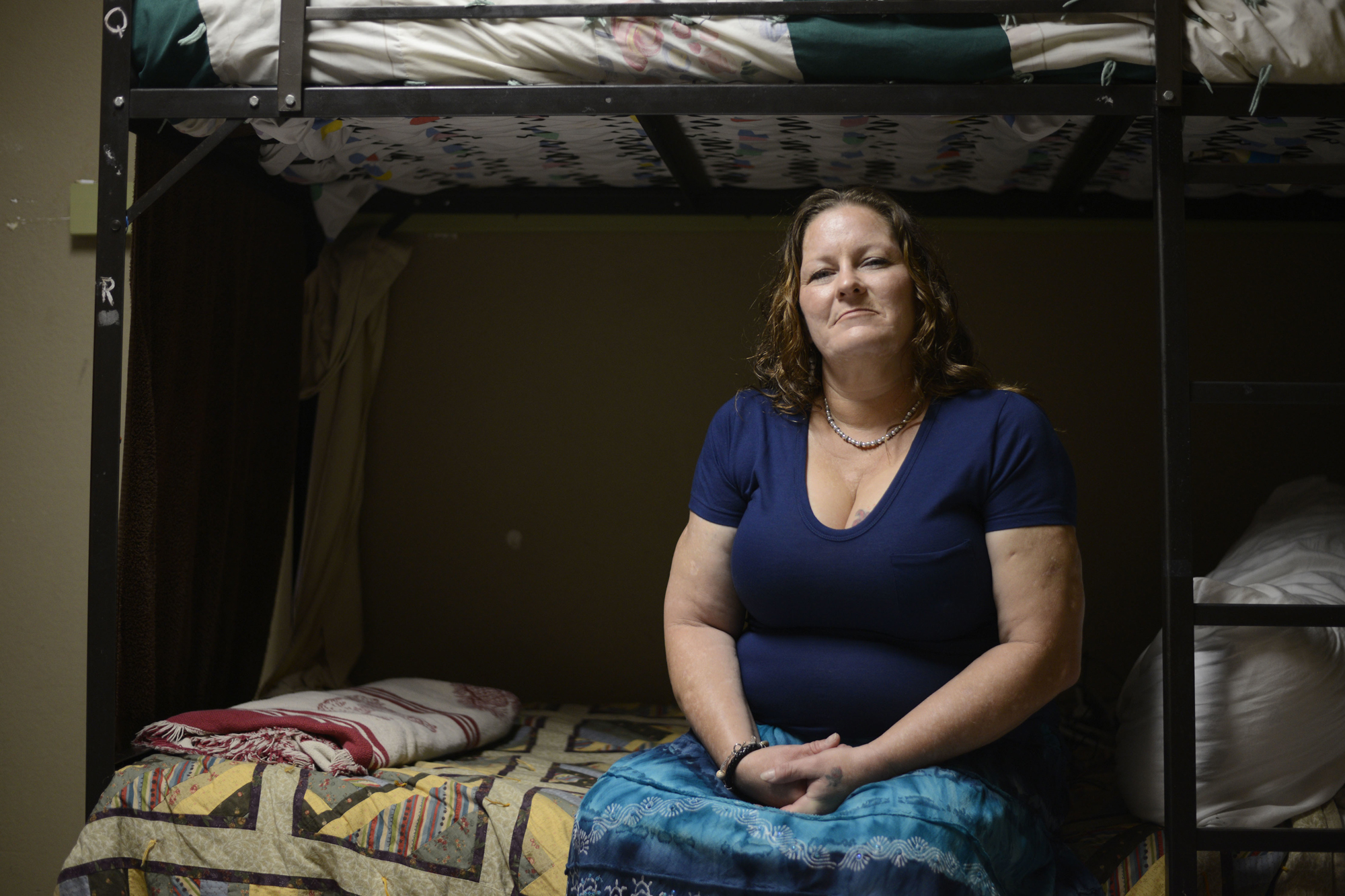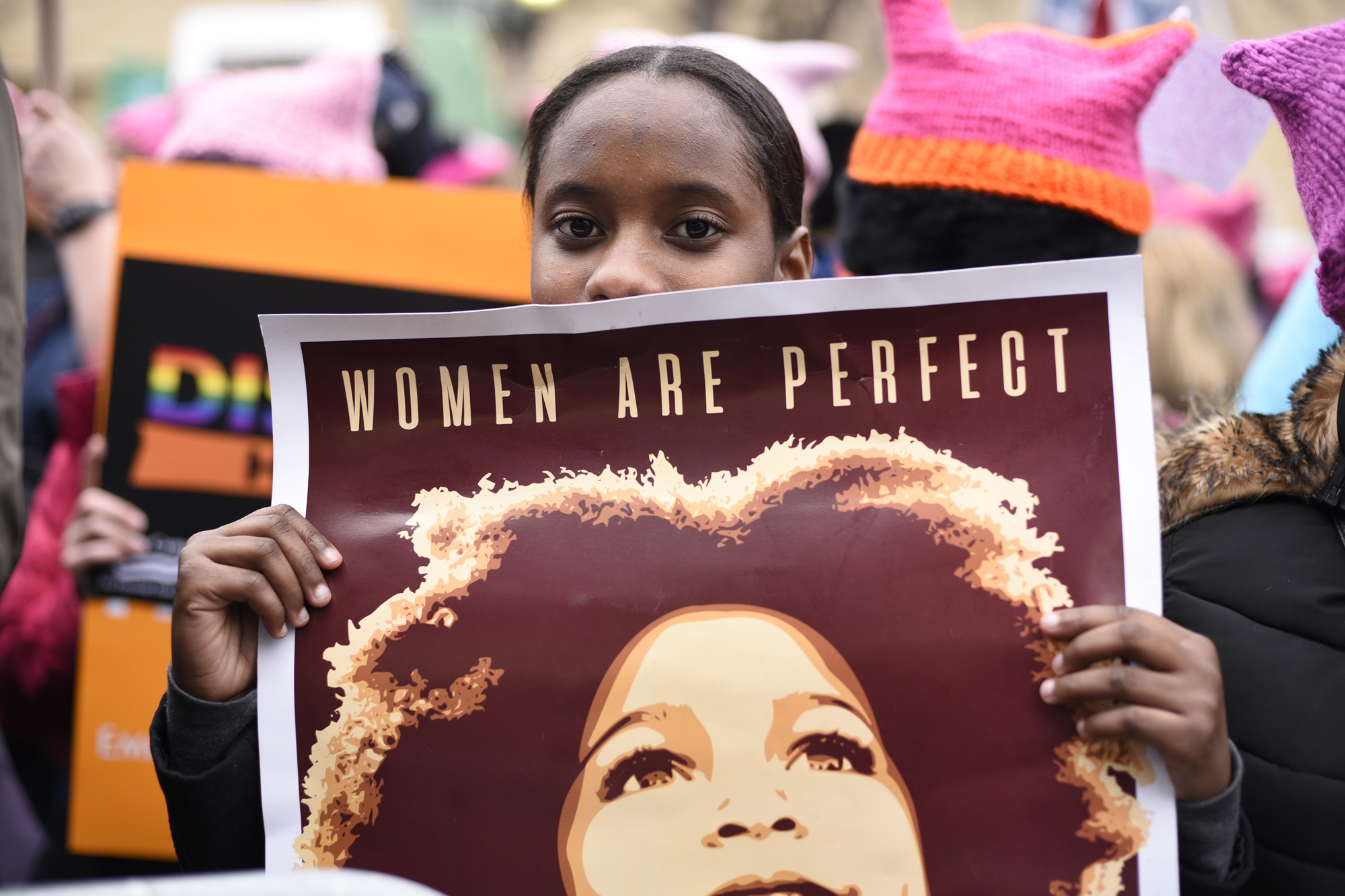According to The Hill, the Trump transition team has proposed cuts similar to those found in a Heritage Foundation budget blueprint that would eliminate $10.5 trillion in federal spending over the next 10 years.
Under the Heritage plan, the cuts would be dramatic. They would reduce funding for the Departments of Commerce, Energy, Transportation, Justice, and State, and eliminate funding entirely for the National Endowment for the Arts, the Corporation for Public Broadcasting, the Paris Climate Change Agreement, and the Office of Energy Efficiency and Renewable Energy.
The cuts would negatively impact low-income people, people of color, and many other groups in terrifying ways. But there is one specific group that would be caught in a perfect storm of slashed services: survivors of sexual and domestic violence, who rely on many government services that would be on the chopping block.
Get TalkPoverty In Your Inbox
The proposed cuts would eliminate grants from the Violence Against Women Act (VAWA), which funds services for survivors like transitional housing, legal assistance, law enforcement training, and support for people who have been sexually abused within the prison system. These grants have been incredibly effective—since the passage of VAWA in 1994, intimate partner violence has decreased by 64%. That success is due, at least in part, to the fact that they work in tandem with other programs, like Community Oriented Policing Services (also slated for elimination under the Heritage Foundation proposal), to make sure police have the staff, technology, and training they need to properly respond to survivors.
These cuts would also eliminate the Legal Services Corporation (LSC), which is the single largest funder of civil legal aid. The most important legal actions that survivors take often happen in civil, not criminal, court—civil court is where they file for divorce from abusive partners, seek custody of their children, and apply for protective orders.
According to Lisalyn Jacobs, Vice President of Government Relations at Legal Momentum, “civil litigation can be a battle of who can wear down who first, and the survivor is far more likely to have less resources to stay in court for a long time.” Survivors are disproportionately likely to be low income, and have almost always been subjected to financial abuse that leaves them with limited access to cash. That makes it harder for them to afford a lawyer or endure a lengthy civil legal case—hence the need for civil legal aid.
The direct elimination of federally-funded support services and legal aid would create an extremely hostile climate for survivors, and the Heritage proposal would hurt this group in other ways as well. It would reduce funding for the Department of Justice Civil Rights Division, which in turn could affect funding for housing discrimination cases. Survivors are particularly vulnerable targets of housing discrimination—landlords often evict survivors or deny them housing specifically because they’ve been abused in the past. The DOJ Civil Rights Division currently extends legal protections to survivors to prevent this, and holds landlords accountable for any instances of biases or discrimination. This cut, then, would immensely weaken protections that survivors rely on in order to achieve safe housing and distance from an abuser.
The overarching conservative argument behind the Heritage proposal is that it’s the responsibility of the states, not the federal government, to protect survivors. But states do not have the finances, leverage, or incentive to provide the same level of service. For example, if victims or their abusers regularly cross state lines—like many people in the DC metro area do simply to commute to work—then state-level policing efforts to enforce protective orders would fall tragically short. Survivors’ mobility often relies on the portability of their protective orders, and only the federal government has the wherewithal to ensure interstate cooperation on these orders.
Each one of these proposed cuts individually would place survivors at increased risk, but combined they would leave survivors without police, housing, and legal protections that they desperately need. That paints a very dark picture for survivors—one that legislators should be mindful of when they draft the federal budget in April.
Editor’s Note: This post has been updated for clarity so that no readers are under the impression that the Trump Administration has released a formal budget proposal.











